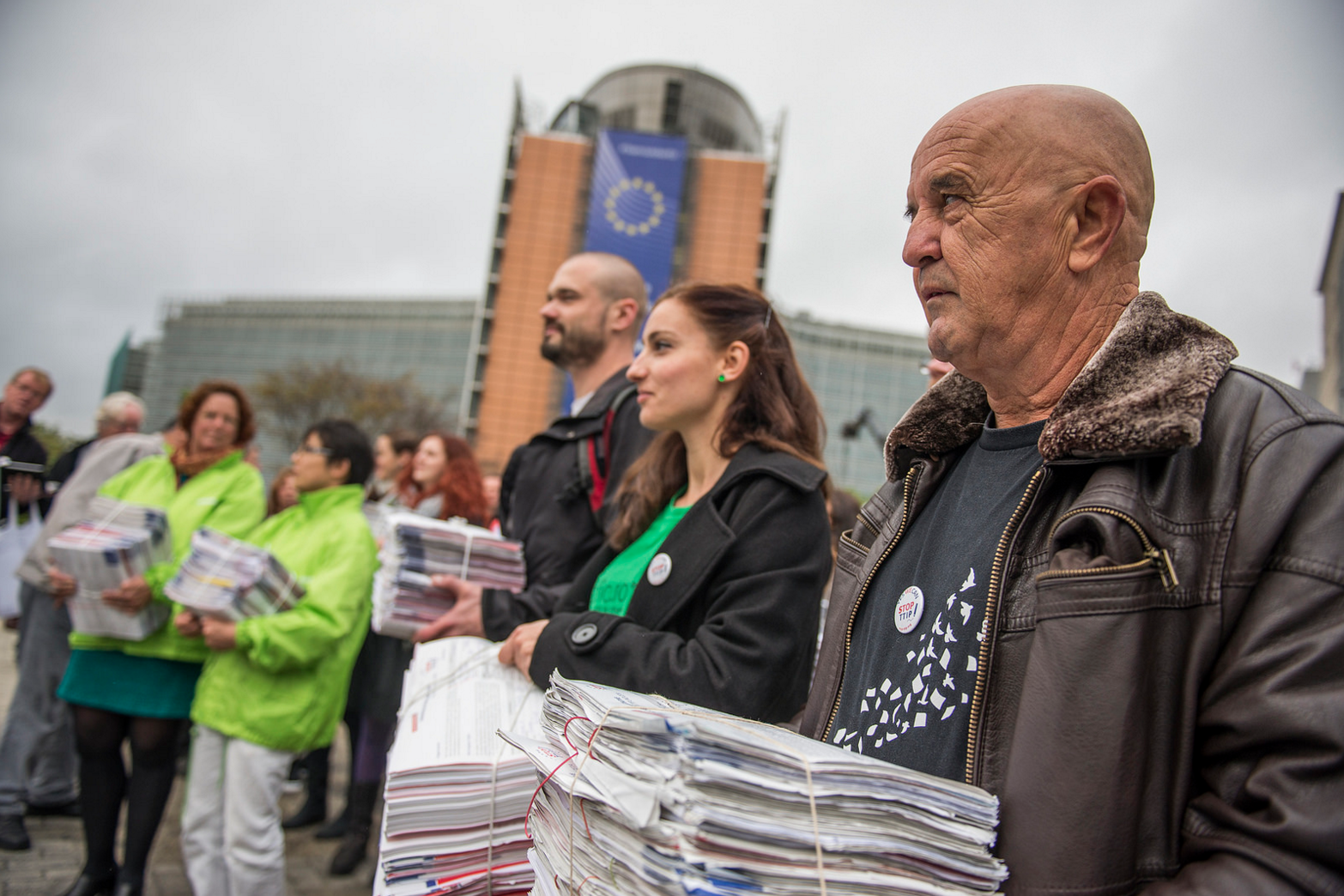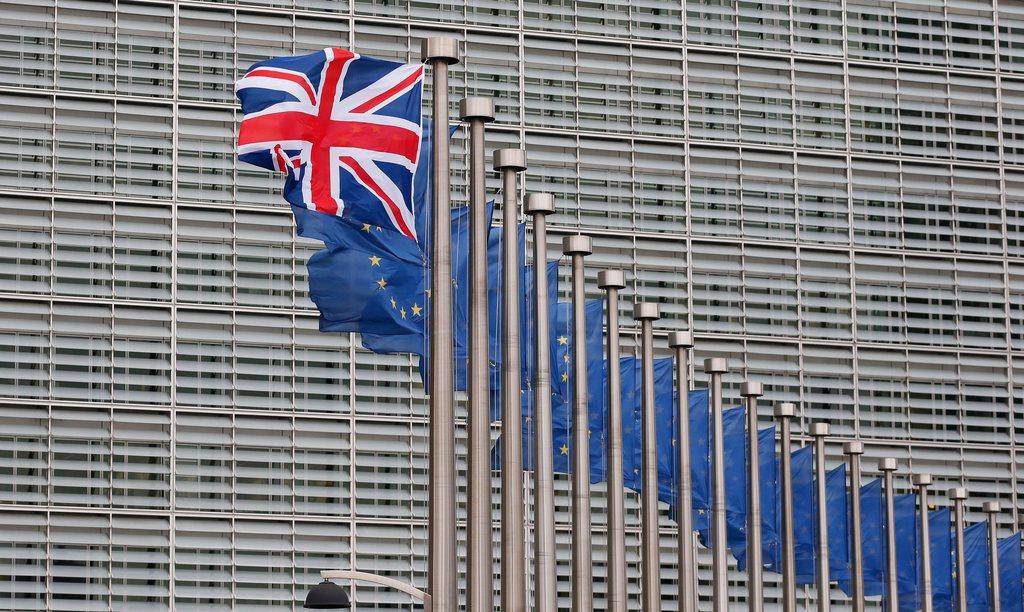The European Citizens’ Initiative is very much alive

The world’s first tool for direct democracy across borders has been dismissed as “useless and toothless”. But the European Citizens’ Initiative – or ECI – might just have hidden potential.
So far, 621,688 EU citizens have signed an ECI to ban the substance glyphosateExternal link and protect against toxic pesticides. It took less than 70 days, and the initiative organisers expect one million people from seven countries to support it by this summer.
Besides “stop glyphosate”, citizens of the 28 EU member states can put their names to eight other ECIs,External link of which six can be signed online. It’s a new record for the five-year-old platform, which in the past has been criticised for not serving much of a purpose. But several points show that it holds more promise than its critics believe.
Stronger performance: In the first year of its existence – 2012-2013 – many citizens and groups tested the new agenda-setting instrument. But since then, the average number of ongoing initiatives steadily fell – until this year. Besides the successful “stop glyphosate” movement, other initiatives now being circulated involve the rights of EU citizens in Britain after Brexit, the protection of free movement across the EU, transnational civic education, environmental issues and a conservative proposal to define marriage as limited to heterosexual couples.
Smarter organisers: In the first few years of the ECI’s existence, most initiatives – 21 out of 40 filed proposals – were refused by the European Commission as they were deemed to “fall manifestly outside the competences of the Commission to propose legislation”. But since September 2014 when the “Stop TTIP” initiative to block the trans-Atlantic trade deal was refused, only one initiative has been rejected.
Independent court: In February 2017, the EU General Court for the first time annulled a Commission decision refusing the registration of an ECI. The case stemmed from a 2013 ECI called “Minority Safe PackExternal link” which promotes the rights of ethnic minorities within member states across the EU. At first, the Commission refused the ECI but the court nullified that decision. As a result, the Commission reversed its ruling and registered the Minority Safe Pack initiative on April 3.
A more supportive infrastructure: When the ECI was founded on April 1, 2012, interested citizens and organisers had very little support in using it. The public institutions were as inexperienced as the citizens themselves. But this has since changed, step by step. Today, both NGOs and public institutions have developed supportive tools for information gatheringExternal link, translationExternal link and legal consultancyExternal link when it comes to the ECI. At the upcoming annual ECI Day,External link the European Commission and the European Parliament will present new contributions to a more supportive infrastructure.
Political momentum: With democracy in retreat in many parts of the world, the European Union is trying to regain its political momentum as a powerhouse for economic success, political stability and human rights. Even refused initiatives like the Stop TTIP ECIExternal link have influenced political discussions. On March 20, the European Commission published a roadmapExternal link regarding drinking water as a direct response to the successful “Right to WaterExternal link” initiative.
A year ago, observers had almost declared the ECIExternal link dead. Now it’s back in the public spotlight, with a petition to strengthen itExternal link supported by more than 40,000 Europeans. It has become a transnational tool for digital and direct democracy, empowering citizens to promote similar tools at the local, regional and national levels.

In compliance with the JTI standards
More: SWI swissinfo.ch certified by the Journalism Trust Initiative




You can find an overview of ongoing debates with our journalists here. Please join us!
If you want to start a conversation about a topic raised in this article or want to report factual errors, email us at english@swissinfo.ch.